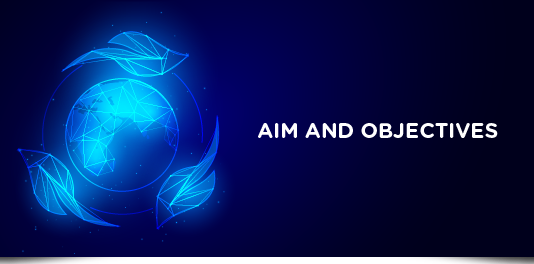
Women in Tech Mauritius, part of the global Women in Tech® movement, is committed to closing the gender gap and empowering girls and women in technology. In collaboration with the Rajiv Gandhi Science Centre, we are launching the first edition of Tech for Ecology. The Tech For Ecology is a project-based competition where students use to tackle real-word ecological challenge(s) that they face at school, at home or in the community.
2. AIMS
The Tech For Ecology competition aims to raise awareness, inspire and engage young girls in the field of science and technology.
• Create Awareness & Inspire – Encourage college girls to develop innovative solutions that address ecological and digital sustainability challenges.
• Promote Innovation – Foster creativity, teamwork, and environmental consciousness by exploring the intersection of technology and ecology.
• Develop Key Skills – Strengthen presentation, critical thinking, and problem-solving skills through hands-on participation.


3. WHO CAN PARTICIPATE?
The competition is open to girls in Grades 7, 8, and 9 from all secondary schools in the Republic of Mauritius. Participants must form a team of four (4) students under the guidance of one (1) supervising teacher/mentor. Each school can submit only one project. All teams must submit a project report and attend workshops at the Rajiv Gandhi Science Centre.
4. HOW TO PARTIICIPATE
Step 1: ONLINE REGISTRATION
Deadline: 30 April 2025
Interested teams of four students have to register online at: https://forms.gle/FcECFbFbc7epoeEaA
Website: rgsc.govmu.org

Step 2: WORKSHOPS
10 April 2025(online)- 16 May 2025(online)
All teams are required to attend workshops on sustainability, project management and user centered design at the Rajiv Gandhi Science Centre.
Step 3:WORK ON THE PROJECT
April/May 2025
Students should work on project report and deliverables as outlined in the Deliverables section.
Step 4:ONLINE SUBMISSION OF PROJECT
30 May 2025
Step 5:SCREENING AND ANNOUNCEMENT OF SHORT-LISTED TEAMS
04 June 2025
Step 6:FINALS AND PRIZE-GIVING
09 June 2025

5. PRIZES
Prizes | |
First prize |
Rs 15,000 + Trophy |
Second prize | Rs 10,000 + Trophy |
Third prize | Rs 5,000 + Trophy |

6. Topics
Participants must identify and solve an ecological issue within their school, home, or community using technology-driven solutions. Participants will design a prototype (using any available platform, for example: Canva, Figma, Justinmind, MS PowerPoint etc.). Possible projects include:
A simple app promoting eco-friendly habits
An informative digital campaign
A prototype solution for environmental conservation
The focus is on using technology to create real impact—either by raising awareness or providing actionable solutions.
Note: Students are not expected to develop an app or website.
7. Deliverables
Project Report (max 10 A4 pages including references): Detailing the project concept, including objectives, ecological impact, design, implementation plan, and future development possibilities. Short Video (up to 5 minutes): A project summary highlighting its core idea, target audience, ecological impact, and innovation. Prototype: A working prototype developed using Figma or any other open-source software, demonstrating key features and user flow.
NOTE: Students are not expected to develop an app or website.


8. Assessment
Innovation & Creativity (25%) – Originality and uniqueness of the idea.
Ecological Impact (25%) – Effectiveness in addressing environmental challenges.
Feasibility & Technical Execution (25%) – Practicality and soundness of the proposed solution.
Presentation Quality (25%) – Clarity, persuasiveness, and overall quality of the submitted materials.
9. ADDRESS FOR CORRESPONDENCE
Director
Rajiv Gandhi Science Centre,
Old Moka Road, Bell Village
Tel: 2132773, Fax: 2132726
Email: education@rgsctf.org Website: rgsc.govmu.org



